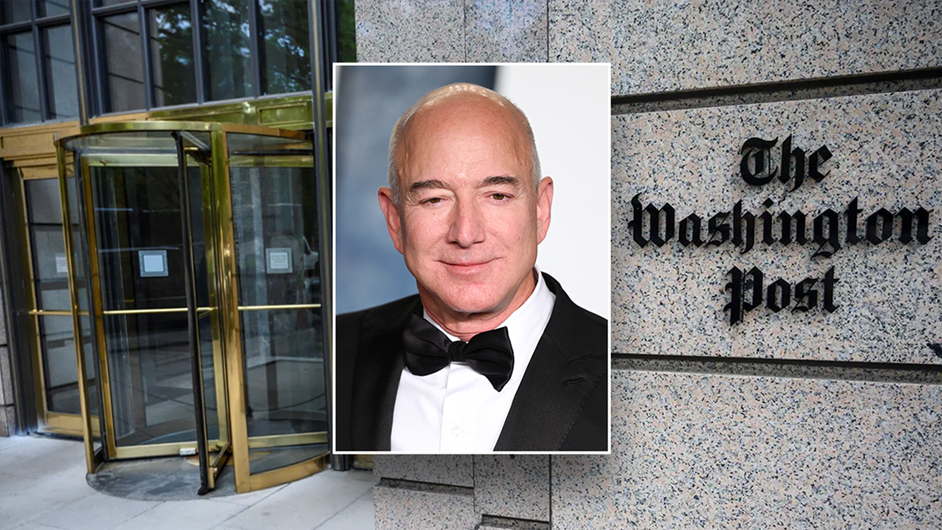In an op-ed published on October 28, 2024, Jeff Bezos, the founder of Amazon and owner of The Washington Post, addressed the significant decline in trust toward media, stating that journalists consistently rank among the least trusted professions in public surveys. This concern is particularly poignant as The Washington Post chose not to endorse a presidential candidate for the first time in 36 years, reflecting a critical moment in journalism. Bezos emphasized the need for newspapers to not only provide accurate information but also to be perceived as credible by their audience. He acknowledged that the media’s credibility crisis has led many individuals to seek news from unreliable sources, which further exacerbates division within society. Recognizing that this is a systemic issue not limited to his publication, Bezos called for introspection among journalists regarding their role and relationship with the public, highlighting the challenges media faces as it grapples with credibility in an era rife with misinformation.
Following Bezos’ op-ed, reactions erupted, particularly from The Washington Post’s editorial staff. Several staff members resigned in protest, with editorial board members David Hoffman and Molly Roberts articulating their frustrations regarding the publication’s decision to remain neutral in such a pivotal political landscape. The resignations underscored a deeper anxiety over perceived encroachments on journalistic integrity, with Hoffman describing the potential threat of autocracy represented by Donald Trump’s candidacy as a moral imperative for the paper to endorse Kamala Harris. This situation sparked a massive consumer backlash, with over 200,000 subscribers canceling their digital subscriptions in response to the editorial decision, signaling a broader dissatisfaction with the perceived lack of accountability in the media’s approach to reporting on significant political developments.
The conversation around legacy media reached a fever pitch with input from media commentators like Megyn Kelly, who suggested that the era of traditional journalism, characterized by established editorial boards and conventional practices, is coming to an end. Kelly stressed that new media, particularly platforms hosting independent voices, have eclipsed the viewership of mainstream outlets. A notable example was given with Joe Rogan’s recent interview with Trump, which reached tens of millions of viewers and demonstrated the shift from scripted interviews to more candid and lengthy discussions. The success of Rogan’s podcast format highlighted a growing hunger for unedited and direct conversations with political figures, contrasting starkly with traditional media reporting that often comes under scrutiny for perceived biases.
Moreover, the legacy media’s struggles in maintaining audience trust can also be traced to larger systemic issues in the journalistic landscape. Reports detailed widespread layoffs and the gutting of journalistic integrity across various media organizations, underscoring a trend of declining resources and increasing pressure to conform to dominant narratives rather than pursue investigative journalism. The fallout from controversial moments in recent political history—such as COVID-19 reporting, the handling of the 2020 election, and narratives surrounding President Trump—has drastically reshaped public sentiment toward media outlets, leading many to seek alternative sources of information that promise greater reliability and transparency.
In light of this media crisis, Bezos’ op-ed and the subsequent resignations from The Washington Post were not merely isolated incidents; they reflect a broader reckoning within journalism. As traditional media institutions struggle with credibility, they are increasingly at odds with an evolving landscape where independent and often more partisan outlets thrive. This tension underscores a pivotal challenge for media: how to regain the trust of a skeptical public that feels abandoned or misled by established journalism. As the competition intensifies for audience share, the urgency for media outlets to reexamine their practices and adapt to changing expectations has never been more critical.
Conclusively, the dynamics of trust and credibility in the media landscape are in flux, as observed through Bezos’ critique and the resignations at The Washington Post. The situation exemplifies the struggles faced by traditional news organizations in a time where perception of bias and misinformation proliferate. Without significant self-reflection and strategic reformation, legacy media risks further alienating their audience in favor of burgeoning alternative sources that capitalize on transparency and direct engagement. Ultimately, the opportunity for a renaissance in media may hinge on the ability of these institutions to recapture the trust of the public they serve, adhering to the twin imperatives of accuracy and perceived credibility.

